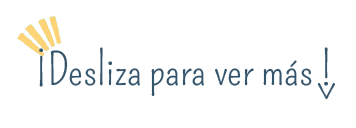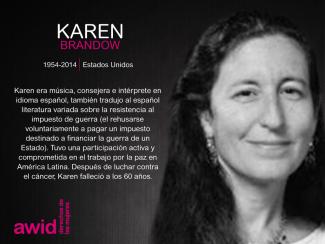
Karen Brandow

Les jeunes activistes féministes jouent un rôle crucial au sein des organisations et des mouvements pour les droits des femmes à travers le monde. Ce sont elles qui soulèvent les nouveaux problèmes auxquels les féministes sont confrontées aujourd'hui. Leur force, leur créativité et leur adaptabilité sont vitales pour assurer la viabilité des organisations féministes.
Pourtant, elles sont confrontées à toute une série d’obstacles particuliers, notamment l'accès limité au financement et au soutien, le manque de possibilités de renforcement des capacités et une augmentation considérable des agressions sur les jeunes défenseuses des droits humains. Ces obstacles entraînent un manque de visibilité qui rend leur intégration et leur participation effective au sein des mouvements pour les droits des femmes encore plus difficiles.
Le Programme d’activisme des jeunes féministes de l'AWID a été mis en place pour veiller à ce que les voix des jeunes femmes soient entendues et représentées dans le discours féministe. Nous voulons faire en sorte que les jeunes féministes aient un meilleur accès à du financement, à des opportunités de renforcer leurs capacités et aux processus internationaux.
En plus de soutenir directement les jeunes féministes, nous travaillons également avec des activistes des droits des femmes de tout âge pour élaborer des modèles et des stratégies d’organisation multigénérationnelles plus efficaces.
Nous souhaitons que les jeunes féministes puissent jouer un rôle actif dans les prises de décisions qui concernent leurs droits. Nos actions incluent :
Favoriser la mise en commun et le partage d'informations par la Plateforme de jeunes féministes. Étant donné l'importance des médias en ligne pour le travail des jeunes féministes, notre équipe a lancé la Plateforme de jeunes féministes en mai 2010. Elle a pour objectifs d’échanger des renseignements, de renforcer les capacités des membres par le truchement de webinaires et de discussions en ligne, et d'encourager la consolidation d’une communauté de jeunes féministes.
Soutenir la recherche et le renforcement des connaissances sur l'activisme des jeunes féministes, pour accroître la visibilité et l'influence de leur activisme au sein et entre les mouvements pour les droits des femmes et auprès d'autres acteurs-trices clés, tels les donateurs.
Faire la promotion de la collaboration multigénérationnelle, en explorant de meilleures façons de travailler ensemble.
Inciter les jeunes féministes à s’engager dans les processus internationaux relatifs au programme de développement, notamment ceux des Nations Unies.
S’assurer leur collaboration dans tous les domaines prioritaires de l'AWID, y compris le Forum, pour faire en sorte que leurs contributions, leurs perspectives, leurs besoins et leur activisme se traduisent dans les débats, les politiques et les programmes qui les concernent.
You can now watch the AWID Feminist Film Club program “Feminist Embodiments of Hope and Power” - a film series on Feminist Realities from the SWANA region curated by Esra Ozban

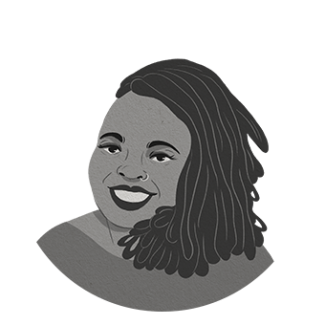 |
Tshegofatso Senne es unx feminista queer negrx con una enfermedad crónica. Buena parte parte de su trabajo se inscribe en el placer, la comunidad y los sueños, para el que se nutre del abolicionismo somático y la discapacidad, la sanación y las justicias transformadoras. Escribiendo, investigando y expresándose sobre cuestiones concernientes al feminismo, la comunidad, la justicia sexual y reproductiva, el consentimiento, la cultura de la violación y la justicia, Tshegofatso ha adquirido ocho años de experiencia teorizando sobre la intersección de estos tópicos con el placer. Tiene su propia actividad comercial, Thembekile Stationery, y la plataforma comunitaria Hedone, un espacio de reunión para analizar y comprender el poder de la toma de conciencia del trauma y el placer en la vida cotidiana. Tshegofatso trabaja con jóvenes de todo el continente, organiza talleres, presta asesoramiento en cuestiones de placer y liberación, y usa la creatividad y la narración como soluciones fractales a las injusticias sociales. |

En el cuerpo, no en el cerebro pensante, es donde experimentamos la mayoría de nuestro dolor, placer y alegría y donde procesamos la mayoría de lo que nos pasa. Es también donde realizamos la mayor parte de nuestra sanación, incluyendo nuestra sanación emocional y psicológica. Y es donde experimentamos la resiliencia y una sensación de fluidez.
Estas palabras, escritas por Resmaa Menakem en su libro My Grandmother’s Hands [Las manos de mi abuela], se han quedado conmigo.
El cuerpo alberga nuestras experiencias. Nuestras memorias. Nuestra resiliencia. Y como ha escrito Menakem, el cuerpo también alberga nuestros traumas. Responde con mecanismos de protección espontáneos para detener o evitar más daños. El poder del cuerpo. El trauma no es el evento mismo; es cómo responden nuestros cuerpos a los eventos que sentimos como peligrosos. A menudo queda atravesado en el cuerpo, hasta que lo abordamos. No se puede convencer a nuestro cuerpo de que no responda, simplemente lo hace.
Utilizando Digital Superpower, la aplicación de Ling Tan, fui registrando cómo se sentía mi cuerpo mientras recorría diferentes partes de mi ciudad, Johannesburgo, Sudáfrica. La aplicación es una plataforma guiada por gestos que te permite registrar tus percepciones mientras te mueves a través de diferentes lugares, cargando y grabando los datos. Yo la usé para registrar mis síntomas psicosomáticos (reacciones físicas conectadas a una causa mental). Podían ser flashbacks. Ataques de pánico. Opresión en el pecho. Un ritmo cardíaco rápido. Dolores de cabeza tensionales. Dolor muscular. Insomnio. Dificultad para respirar. Registré estos síntomas mientras caminaba y recorría distintas partes de Johannesburgo. Y me pregunté.
¿Dónde podemos estar segurxs? ¿Podemos estar segurxs?
Las respuestas psicosomáticas pueden ser causadas por una cantidad de cosas, y algunas no son tan severas como otras. Después de vivir cualquier tipo de trauma, puedes sentir un intenso malestar en eventos o situaciones parecidas. Registré mis sensaciones, ordenadas en una escala del 1 al 5, en la que el 1 representaba las instancias en las que apenas sentí alguno de estos síntomas – me sentía más cómoda que en guardia o nerviosa, mi respiración y mi ritmo cardíaco eran estables, no estaba mirando sobre mi hombro – y el 5 era lo opuesto: los síntomas me tenían cerca del ataque de pánico.
Como persona negra. Como persona queer. Como persona de género queer que puede ser percibida como mujer, dependiendo de cuál sea mi expresión de género ese día.
Me pregunté.
¿Dónde podemos estar segurxs?
Incluso en barrios que se podrían considerar «seguros», me he sentido constantemente en pánico. Mirando alrededor mío para asegurarme de que no me estaban siguiendo, acomodándome la camiseta de manera que no se me noten tanto los pechos, mirando alrededor para asegurarme de encontrar numerosas rutas para salir del lugar en el que estaba si me sintiera en peligro. Un camino vacío provoca ansiedad. Uno atestado también lo hace. Estar en un Uber también. Caminar en un camino público también. Estar en mi departamento también. Y también lo hace recibir una entrega a domicilio en la puerta de entrada del edificio.
¿Podemos estar segurxs?
Pumla Dineo Gqola habla de la fábrica de miedo femenino. Puede o no resultarte familiar, pero si eres alguien socializadx como mujer, conocerás bien esta sensación. La sensación que te hace planificar cada paso que das, ya sea que vayas a trabajar, a la escuela, o simplemente a hacer algún trámite. La sensación de que tienes que fijarte cómo te vistes, cómo actúas, cómo hablas tanto en público como en privado. La sensación en la boca del estómago si tienes que viajar de noche, recibir una entrega a domicilio o tratar con cualquier persona que sigue socializado como hombre cis. Acosadx en la calle, siempre con la amenaza de la violencia. Nuestra existencia en cualquier espacio viene con un miedo innato.
El miedo es tanto un fenómeno individual como sociopolítico. A nivel individual, el miedo puede presentarse como parte de un sistema de alarma saludable y bien desarrollado [...] Cuando pensamos en el miedo, es importante sostener ideas tanto acerca de la experiencia emocional individual como de las maneras políticas en las cuales el miedo ha sido utilizado para el control en diferentes épocas.
- Pumla Dineo Gqola, en su libro Rape: A South African Nightmare [La violación, una pesadilla sudafricana]
Las mujeres, femmes y queers sudafricanxs sabemos que cada paso que damos afuera – pasos para hacer las cosas cotidianas: caminar a las tiendas, un taxi al trabajo, un Uber desde una fiesta – todos estos actos son una negociación con la violencia. Este miedo es parte del trauma. Para soportar el trauma que cargamos en nuestros cuerpos, desarrollamos respuestas para detectar el peligro: mirar las respuestas emocionales de aquellxs a nuestro alrededor, leer buscando la «simpatía». Estamos constantemente en guardia.
Día tras día. Año tras año. Vida tras vida. Generación tras generación.
Acerca del desafío adicional de este sistema de defensa aprendido, Bessel Van Der Kolk, autor de The Body Keeps Score [El cuerpo lleva la cuenta], dijo:
Es que perturba esta capacidad de leer a otrxs con precisión, dejando a lx sobreviviente de trauma menos capaz de detectar el peligro o más proclive a percibir erróneamente peligro donde no lo hay. Insume una tremenda cantidad de energía seguir funcionando mientras se carga con la memoria del terror y la vergüenza de la absoluta debilidad y vulnerabilidad.
Como ha dicho Resmaa Menakem, el trauma está en todo. Se infiltra en el aire que respiramos, el agua que tomamos, los alimentos que comemos. Está en el sistema que nos gobierna, en la institución que nos enseña y que también nos trauma y dentro de los contratos sociales que acordamos con lxs demás. Lo que es más importante, lo llevamos con nosotrxs a todos lados a donde vamos, en nuestros cuerpos, mientras nos agota y erosiona nuestra salud y felicidad. Llevamos esa verdad en nuestros cuerpos. Lo hemos hecho durante generaciones.
Así que, mientras camino por mi ciudad, ya sea en un área que es considerada «segura» o no, llevo los traumas de generaciones cuyas respuestas están integradas a mi cuerpo. Mi corazón palpita, se hace difícil respirar, mi pecho se tensa, porque mi cuerpo siente como si el trauma estuviera sucediendo en ese mismo momento. Vivo en hiper vigilancia. Hasta el punto en el que unx está demasiado en guardia como para poder disfrutar plenamente su vida, o demasiado adormecidx para absorber nuevas experiencias.
Para comenzar a sanar, debemos reconocer estas verdades.
Estas verdades que viven en nuestros cuerpos.
Este trauma es lo que nos impide a muchxs vivir las vidas que queremos. Pregunta a cualquier femme o persona queer cómo es para ellxs la seguridad y seguramente te darán ejemplos de tareas simples: ser capaz de simplemente vivir vidas alegres, sin la amenaza constante de la violencia.
Las sensaciones de seguridad, de comodidad y de facilidad, son espaciales. Cuando encarnamos nuestro trauma, afecta las formas en las que percibimos nuestra propia seguridad, afecta las maneras en las que interactuamos con el mundo y altera las maneras en las que somos capaces de experimentar y encarnar cualquier cosa placentera y alegre.
Tenemos que rehusarnos a esta pesada responsabilidad y luchar por un mundo seguro para todxs. Caminando heridxs, como estamos muchxs, somos luchadorxs. El patriarcado puede aterrorizarnos y brutalizarnos, pero no abandonaremos la lucha. Cada vez que salimos a la calle, desafiando el miedo de maneras espectaculares y aparentemente insignificantes, nos defendemos y hablamos en nuestro propio nombre.
- Pumla Dineo Gqola, en su libro Rape: A South African Nightmare [Violación, una pesadilla sudafricana]
¿Dónde podemos estar segurxs? ¿Cómo comenzamos a defendernos, no solo en el sentido físico, sino en sentido emocional, psicológico y espiritual?
«El trauma nos convierte a todxs en armas», dijo adrienne maree brown en una entrevista realizada por Justin Scott Campbell. Y su obra, Pleasure Activism [Activismo del placer], nos ofrece numerosas metodologías para sanar ese trauma y afianzarnos en la comprensión de que la sanación, la justicia y la liberación también pueden ser experiencias placenteras. Especialmente quienes estamos más marginadxs, quienes puede que hayamos sido criadxs para equiparar el sufrimiento con «El trabajo». El trabajo que nos hemos tomado tantxs como activistas, constructorxs de comunidades, aquellxs que atienden a lxs más marginadxs, El trabajo que luchamos por hacer, quemándonos y raramente cuidando nuestras mentes y cuerpos. La alternativa es hacernos más conscientes de nuestro trauma, capaces de identificar nuestras propias necesidades y encarnar eso profundamente. Ese encarnar significa simplemente que somos más capaces de experimentar el mundo a través de los sentidos y las sensaciones en nuestros cuerpos, reconociendo lo que nos dicen, en vez de suprimir e ignorar la información que nos están comunicando.
Estar en conversación constante con nuestro cuerpo vivo y sostener intencionalmente esas conversaciones nos conecta más profundamente con lo encarnado, nos permite hacer tangibles las emociones que sentimos cuando interactuamos con el mundo, amigarnos con nuestros cuerpos y entender todo lo que están tratando de enseñarnos. Cuando entendemos que el trauma y el encarnar están acoplados, podemos comenzar la sanación y acceder al placer más integralmente, saludablemente, y en nuestras vidas cotidianas sin vergüenza ni culpa. Podemos comenzar a acceder al placer como una herramienta para el cambio individual y social, aprovechando el poder de lo erótico, como lo describió Audre Lorde. Un poder que nos permite compartir la alegría a la que accedemos y que vivimos, ampliando nuestra capacidad para la felicidad y entendiendo que somos merecedorxs de ello, incluso con nuestro trauma.
Aprovechar el placer y la encarnación de lo erótico nos da la amplitud de estar deliberadamente vivxs, sintiéndonos afianzadxs y estables y entendiendo nuestros sistemas nerviosos. Nos permite entender y descargarnos del equipaje generacional que hemos estado acarreando sin darnos cuenta; podemos tener el poder que nos da el conocimiento de que incluso tan traumatizadxs como estamos, tan traumatizadxs como podríamos estar en el futuro, aún somos merecedorx de vidas placenteras y alegres, que podemos compartir ese poder con nuestra gente. Es el aspecto comunitario lo que está faltando en la forma en que nos cuidamos; el autocuidado no puede existir sin cuidado comunitario. Somos capaces de sentir una confianza, seguridad y poder internos más profundos en nosotrxs mismxs, especialmente de cara a traumas futuros que van a ser disparadores, sabiendo cómo tranquilizarnos y estabilizarnos. Todo este entendimiento nos lleva a un poder interior más profundo que tiene recursos para enfrentar cualquier desafío que surja en nuestro camino.
Como somos lxs que vivimos con profundos traumas generacionales, nos hemos vuelto desconfiadxs y quizás pensemos que somos incapaces de contener y acceder al poder que tenemos. En «Los usos de lo erótico: lo erótico como poder», Lorde nos enseña que lo erótico nos ofrece una fuente de recarga, una forma de exigir lo mejor para nosotrxs y para nuestras vidas.
Porque lo erótico no es solo se trata de lo que hacemos, es una cuestión de con cuánta intensidad y plenitud podemos sentirnos mientras lo hacemos. Una vez que sabemos en qué medida somos capaces de sentir esa sensación de satisfacción y completitud, podemos observar cuál de nuestros diversos esfuerzos vitales nos lleva más cerca de esa plenitud.

No digo nada de esto livianamente, sé que es más fácil decirlo que hacerlo. Sé que muchxs de nosotrxs estamos impedidxs de entender estas verdades, de internalizarlas o incluso de sanarlas. La resistencia viene con momentos de inseguridad, pero no es imposible. Resistir las estructuras de poder que mantienen a salvo a lxs más poderosxs siempre pondrá en peligro a quienes fuimos empujadxs a los márgenes. Reconocer los traumas que has enfrentado es una recuperación de tus experiencias vividas, las que han pasado y las que vendrán; es la resistencia la que encarna el conocimiento de que somos merecedorxs de algo más que las migajas que estos sistemas nos han obligado a engullir. Es una resistencia que entiende que el placer es complicado por el trauma, pero que se puede acceder a él de formas arbitrarias y poderosas. Es una resistencia que reconoce que nuestro trauma es un recurso que nos conecta entre nosotrxs y que nos puede permitir mantenernos mutuamente a salvo. Es una resistencia que entiende que incluso con el placer y la alegría esto no es una utopía; aún causaremos y recibiremos daño, pero estaremos mejor equipadxs para sobrevivir y prosperar en una comunidad de cuidados diversos y amabilidad. Una resistencia que da paso a la sanación y la conexión con nuestro ser plenamente humanxs.
Sanar nunca será un recorrido fácil y optimista, pero comienza con el reconocimiento de la posibilidad. Cuando la opresión nos hace creer que el placer no es algo a lo que todxs podamos tener igual acceso, una de las maneras en las que comenzamos a hacer el trabajo de reclamar nuestro ser pleno – nuestro ser completo y liberado – es reclamando nuestro acceso al placer.
En su artículo en Pleasure Activism (con el cual ha contribuido), Leah Lakshmi Piepzna-Samarasinha ha dicho:
Sé que para la mayoría de la gente las palabras «cuidado» y «placer» ni siquiera pueden estar en la misma oración. Todxs estamos empapadxs en un odio capacitista hacia los cuerpos que tienen necesidades, y nos dan una opción realmente de mierda: o no tener necesidades para conseguir tener autonomía, dignidad y control sobre nuestra vida o admitir que necesitas cuidado y perder todo lo anterior.
¿Qué poder tiene esto? Entendemos nuestros traumas, de este modo, entendemos los de otrxs; encarnamos las sensaciones que experimentamos y vamos hacia ellas en vez de distraernos y evitarlas. Accedemos al placer de maneras que nos hacen querer compartir esa alegría con quienes son nuestra comunidad. Cuando tenemos conciencia del trauma, nos damos más lugar para experimentar todo esto y nos damos, a nosotrxs y a otrxs, el permiso para sanar. Imagina una comunidad en la cual todxs tienen acceso, recursos y tiempo para vivir vidas placenteras, en la forma que sea que quieran y merezcan; en la cual los traumas territoriales están mitigados porque las personas que los ocupan son conscientes del trauma y están llenas de cuidado tierno. ¿No es eso sanador? ¿No es eso trabajar los traumas generacionales? ¿No construye y sostiene eso futuros más sanos para todxs?
Es tiempo de que reconectemos con el conocimiento ancestral de que merecemos vivir vidas plenas. Necesitamos volver a estar en contacto con nuestro derecho natural a la alegría y a existir para nosotrxs. A sentir placer simplemente por el hecho de sentirlo. A no vivir vidas de terror. Suena radical, se siente radical. En un mundo donde hemos sido socializadxs y traumatizadxs para el entumecimiento, para el miedo, para sentirnos y seguir estando impotentes, para ser codiciosxs y vivir con temas estructurales que nos llevan a la enfermedad mental, qué regalo y qué maravilla es empezar a sentir, a estar en comunidad con quienes sienten, a ser sanamente interdependientes, a amarnos mutuamente. Sentir es radical. El placer es radical. Sanar es radical.
Tienes permiso para sentir placer. Tienes permiso para bailar, crear, hacerte el amor a ti mismx y a otrxs, celebrar y cultivar la alegría. Te aliento a que lo hagas. Tienes permiso para sanar. No te lo guardes dentro, no intentes atravesar este momento solx. Tienes permiso para hacer el duelo. Y tienes permiso para vivir.
- adrienne maree brown, «You Have Permission» [Tienes permiso]
La encarnación somática nos permite explorar nuestro trauma, trabajarlo y establecer conexiones significativas con nosotrxs mismxs y con el colectivo. Hacer esto a lo largo del tiempo sostiene nuestra sanación; al igual que el trauma, la sanación no es un evento de una única vez. Esta sanación nos ayuda a avanzar hacia la liberación individual y colectiva.
En «A Queer Politics of Pleasure» [Una política queer del placer], Andy Johson habla acerca de las formas en las que hacer que el placer sea queer nos ofrece fuentes de sanación, aceptación, liberación, juego, plenitud, desafío, subversión y libertad. ¡Qué amplio! Cuando encarnamos el placer en formas que son tan integrales, tan queer, somos capaces de reconocer la limitación.
Hacer que el placer sea queer también nos plantea las preguntas que entrecruzan nuestros sueños con nuestras realidades de vida.
¿Quién es libre o consideradx suficientemente valiosx para sentir placer? ¿Cuándo se tiene permitido sentir placer o satisfacción? ¿Con quién se puede sentir placer? ¿Qué clase de placer es accesible? ¿Qué nos limita para acceder a todo nuestro potencial erótico y de satisfacción?
- Andy Johnson, «A Queer Politics of Pleasure» [Una política queer del placer]
Cuando nuestras prácticas de placer conscientes del trauma están basadas en el cuidado comunitario, comenzamos a responder algunas de estas preguntas. Comenzamos a entender el potencial liberador. Como activistas del placer, esta es la realidad en la que nos afirmamos. La realidad que dice: mi placer puede ser fractal, pero tiene el potencial de sanarme no solo a mí y a mi comunidad, sino a futuros linajes.
Soy un sistema entero; somos sistemas enteros. No somos solo nuestros dolores, solo nuestros miedos ni solo nuestros pensamientos. Somos sistemas enteros preparados para el placer y podemos aprender cómo decir sí desde adentro.
- Prentis Hemphill, entrevistadx por Shar Jossell
Hay un mundo de placer que nos permite comenzar a entendernos integralmente, de formas que nos dejen lugar para reconstruir las realidades que afirman que somos capaces y merecedorxs de placer cotidiano. El BDSM, uno de mis placeres más profundos, me permite dar un vistazo a estas realidades en las que puedo tanto sentir como sanar mi trauma, así como sentir innumerables oportunidades para decir sí desde adentro. Mientras que el trauma me mantiene estancada en un ciclo de luchar o huir, el bondage , el estar de rodillas, el impacto y el juego de asfixia me alientan a mantenerme en tierra y conectadx, reconectando con la reparación. El placer que es lúdico me permite sanar, identificar dónde está guardada en mi cuerpo la energía traumática y enfocarla ahí. Me permite expresar las sensaciones que siente mi cuerpo a través de gritos de dolor y de placer, expresar mi no sin miedo y deleitarme en el puto sí. Con un plan de seguridad, cuidado posterior y una comprensión profunda del trauma, lo retorcido ofrece un lugar para el placer y la sanación que es invaluable.
Así que tanto si tu placer es cocinar una comida a tu gusto, tener sexo, pasar el día en la cama con tu gente, participar en colectivos de cuidado de personas con discapacidad, que alguien te escupa en la boca, ir a excursiones accesibles, tener citas tiernas, asistir a una fiesta bailable en línea, dedicar tiempo a tu jardín, ser ahogadx en un calabozo, espero que lleves el placer contigo donde sea que vayas. Espero que te sane a ti y a tu gente.
Reconocer el poder de lo erótico en nuestras vidas puede darnos la energía para buscar un cambio genuino en nuestro mundo.
- Audre Lorde, «Uses of the Erotic: The Erotic as Power» [Los usos de lo erótico: lo erótico como poder]


Esta edición en alianza con Kohl: una publicación para Body and Gender Research analizará soluciones, propuestas y realidades feministas para transformar nuestro mundo actual, nuestros cuerpos y nuestras sexualidades.

نصدر النسخة هذه من المجلة بالشراكة مع «كحل: مجلة لأبحاث الجسد والجندر»، وسنستكشف عبرها الحلول والاقتراحات وأنواع الواقع النسوية لتغيير عالمنا الحالي وكذلك أجسادنا وجنسانياتنا.

Aïssata Kane, también conocida afectuosamente como «Yaye Kadia»” [«Madre Kadia»], fue una feminista comprometida, durante toda su vida, con la defensa de los derechos de las mujeres africanas y, en especial, mauritanas.
En 1975 fue la primera mujer en ocupar el cargo de Ministra de Protección Familiar y Asuntos Sociales, puesto desde el cual Aïssata trabajó fervientemente para mejorar el estatus de las mujeres de su país.
Este trabajo incluyó el fomento de la educación de niñas y mujeres, la lucha contra la práctica de alimentación forzada de mujeres jóvenes, la incidencia para la inclusión de una legislación sobre derechos maritales, y la promoción de la creación de un cupo de representación femenino en el Parlamento.
«[Aïssata] materializaba todas sus pasiones con humildad, valentía y determinación. No quería molestar a nadie con su lucha en todos estos frentes simultáneos.» - Ball Halimata Dem, sobrina de Aïssata
Fundó la Unión Nacional de Mujeres de Mauritania (UNFM), creando y publicando con otras activistas Marienou, una revista dedicada a la emancipación de las mujeres mauritanas. Aïssata también dirigió varias organizaciones subregionales y locales, por ejemplo, como Presidenta de la Asociación Internacional de Mujeres Francófonas (AIFF) y, como firme ecologista, fue Presidenta de la Asociación para la Protección del Medio Ambiente de Mauritania (APEM).
En 2018, recibió el Premio a la Mujer Pionera, en honor a su trabajo para la promoción del estatus de las mujeres de Mauritania y como reconocimiento de su fuerte liderazgo y su sentido de la innovación.
Aïssata falleció el 10 de agosto de 2019.
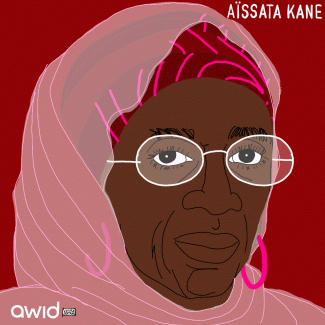
A conversation on international advocacy and global governance
✉️ By registration only. Register here
📅 Friday, March 14, 2025
🕒 2.30pm EST
🏢 Blue Gallery, The Blue Building, 222 East 46th Street
🎙️Facilitated by: Anissa Daboussi, Manager, Advancing Universal Rights and Justice team
Organizer: SRI, AWID
Join as an AWID member now and participate in our next member event:
“Forum Dreaming” on June 20th.
Como parte del Viaje por las Realidades Feministas de AWID, te invitamos a explorar nuestro nuevo Club de Cine Feminista: una colección de cortometrajes y largometrajes seleccionados por nuestrxs curadorxs y narradorxs feministas de todo el mundo, que incluyen a Jess X. Snow (Asia-Pacífico), Gabrielle Tesfaye (África/Diáspora Africana) y Esra Ozban (Sudoeste Asiático y África del Norte). Alejandra Laprea es la curadora del programa de América Latina y Centroamérica, que inauguraremos en septiembre, durante el evento de AWID Crear, Résister, Transform: un festival para movimientos feministas. Mientras tanto, ¡mantente atentx a los anuncios sobre proyecciones especiales y conversaciones con cineastas!

En 2022, en AWID celebramos los 40 años de nuestra fundación. Estamos aprovechando este momento para reflexionar sobre nuestro pasado y aprender sobre el camino transitado, como preparación para poner nuestra mira al futuro y construir trayecto de ahora en adelante. A medida que avanzamos a través de ciclos de crecimiento y retroceso, comprendemos que las luchas por los derechos de las mujeres y la justicia de género son iterativas y nunca lineales.
En colaboración con la artista Naadira Patel, creamos un álbum que resalta algunos momentos de las últimas cuatro décadas de apoyo a los movimientos feministas por parte de AWID. No hicimos todo eso solxs. Lo compartimos con profunda apreciación por la constelación de activistas y grupos feministas que hicieron posible ese trabajo. En este contexto de tantas crisis convergentes, escogimos esta oportunidad para celebrar el poder y la resiliencia de los movimientos feministas en el mundo.
Puedes abrir en pantalla grande si deseas.
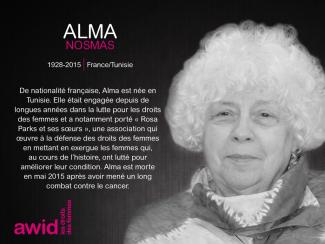
Rosane Santiago Silveira, que l’on appelait affectueusement Rô Conceição, était une activiste brésilienne pour l’environnement et les droits humains qui se battait inlassablement pour protéger l’environnement, là où il était le plus menacé.
Il pouvait entre autres s’agir de le défendre sur l’île de Barra Valha, mise en danger par une exploitation pétrolière, ou de le protéger avec des campagnes contre l’accaparement des terres et l’expansion de plantations d’eucalyptus dans l’État de Bahia, où Rosane était membre du conseil de la réserve d’extractivistes de Cassurubá.
« La réserve d’extractivistes est une zone protégée où les familles résidentes vivent des produits naturels extraits de la forêt. Ces activités contribuent à protéger l’intégrité de la forêt. » - Global Justice Ecology Project (source initiale : Rede Brasil Atual)
Elle participait à des activités syndicales et des mouvements culturels et de défense des droits humains. Rosane consacrait une grande partie de sa vie à des causes qui lui étaient chères, mais qui concernaient également la terre, les forêts, les rivières et les communautés dont les droits et vies sont constamment en danger.
Elle a été torturée et assassinée le 29 janvier 2019 à Nova Viçosa, une ville du sud de Bahia.
« Malheureusement, un sentiment d’insécurité totale règne désormais, parce que l’État ne juge pas ces crimes. Nous étions avec elle à Noël, et tout le monde s’est rendu compte qu’elle était inquiète. Nous savons maintenant qu’elle avait reçu trois menaces de mort », Tuian, le fils de Rosane dans un entretien avec Rádio Brasil Atual. (source initiale : Rede Brasil Atual)

Boil them down to communications language preferences
¡Sí! Por favor lee la Convocatoria de Actividades y presenta tu propuesta aquí. La fecha límite es el 1ero de febrero de 2024.
While fundamentalisms, fascisms and other systems of oppression shapeshift and find new tactics and strategies to consolidate power and influence, feminist movements continue to persevere and celebrate gains nationally and in regional and international spaces.
Par Nkhensani Manabe
Le titre de la conversation « Pansexuel, Gynasexuel ou Abrosexuel ? Une plongée dans la queerness, le plaisir et la positivité sexuelle » donne matière à réflexion. Tiffany Kagure Mugo, auteure, éducatrice et programmatrice de HOLAAfrica, commence la discussion par une lecture de Touch, une collection récemment publiée d'essais de fiction et de non-fiction sur le sexe, la sexualité et le plaisir. Dans cet extrait, l'auteure avance l'idée que le plaisir est constant et continu, qu'il se retrouve dans les activités quotidiennes et ne se limite pas aux relations sexuelles.
Cette idée, du plaisir faisant autant partie de la vie quotidienne qu'autre chose, guide la discussion, couvrant également les thèmes du désir, de l'attirance et de l'orientation sexuelle.

Dès le départ , il y a ce sentiment d'espoir et de possibilité. Tiffany présente des options et explique les alternatives, nous donnant un nouveau langage pour parler de qui nous sommes, de ce que nous aimons et de comment nous le voulons. Il est question de désir et de sexe, mais surtout de connaissance de soi et d'autonomisation. Tiffany parle avec passion du fait de prendre des décisions à partir d'un lieu de pouvoir : apprendre de sa propre identité afin de pouvoir faire les meilleurs choix pour soi-même.
Dans une discussion ouverte et libre, représentant l'attitude que Tiffany voudrait que nous adoptions tou·te·s, nous apprenons que les savoirs sur le sexe et la sexualité sont en constante évolution, et que leurs limites se déplacent. Ce qu’on a peut-être appris ou, plus important encore, ce dont nous avons été tenus à l'écart en tant qu'enfants ou adultes, est précisément le point de départ pour désapprendre et se déprogrammer. Tiffany souligne que les jeunes de nos jours ont besoin d'outils pour comprendre les expériences qu'iels vivent déjà, un rappel sur le fait de ne jamais sous-estimer ce que les enfants et les adolescent·e·s savent sur le type de plaisir(s) qu’iels poursuivent dans la vie.
La conversation m’a ouvert l’esprit sur un point : me connaître m'aidera à prendre confiance en moi ; je pourrai aborder les relations en prenant soin non seulement de moi-même mais des autres. Apprendre le langage de l'orientation, de l'attirance, du désir et du plaisir contribuera à approfondir mes relations futures. J'ai apprécié le fait d'avoir un espace pour réfléchir à cet aspect de ma vie - ces parties privées et intimes auxquelles je n'accède pas souvent. L'enthousiasme de Tiffany pour le plaisir et l'identité a repoussé mes propres limites et m’a permis d'ouvrir de nouvelles possibilités personnelles.
L'idée d'apprendre à établir des liens holistiques n'est pas encore courante. Globalement, nous vivons dans une culture de connexions instantanées et éphémères. Il n'y a pratiquement jamais de temps pour réfléchir réellement à la raison et au type de relation ou de partenariat que nous recherchons - du moins, pas avant une période de crise.
Bien sûr, il existe des espaces dédiés à accueillir les questions et les discussions, tels que le festival AWID Crear Résister Transform et d'autres plateformes ou publications en ligne de pensée libre - mais l'accès à l'information à partir d'une source utile et sans jugement est toujours laborieux . Cela peut être dû en partie au fait que les gens ne font pas confiance au langage de la sexualité et du plaisir.

La notion de langage et d'outils se répète tout au long de la présentation. Tiffany et ses collègues assurent la fonction de parler, d'enseigner et d’alimenter. Voir ce dont les personnes ont besoin, où elles se trouvent, ce qu'elles veulent pour elles-mêmes et marcher à leurs côtés pendant qu'elles construisent leurs mondes idéaux. Leur donner de nouveaux mots et définitions pour les aider à façonner leurs identités à différentes étapes de leur vie.
Les conversations de ce type sont nécessaires, même dans une société qui diffuse à tout moment une myriade de messages sur la santé, plus ou moins détaillés. Les gens ont parfois besoin d’être tirés à l'écart pendant les grands moments collectifs et encouragés à connaître leurs opinions et leurs désirs individuels. C'est ce que fait le discours de Tiffany : il donne aux gens un espace au sein du plus grand puzzle.
Sexuel - signifie le désir exprimé d'avoir des relations avec une ou plusieurs personnes
Sensuel - le désir de toucher une ou plusieurs personnes, d'être physiquement proche sans nécessairement avoir des rapports sexuels
Romantique - le désir de sortir ou d'être en relation avec une ou plusieurs personnes
Platonique - le désir de nouer des amitiés étroites
Esthétique - le désir de regarder et d'apprécier l'apparence d'une ou de plusieurs personnes
Ces cinq types ou niveaux d'attraction offrent un raccourci du désir et du plaisir, et aident à contextualiser les différents types de plaisir que les gens peuvent éprouver.
Penser l'attirance au-delà du physique ou du sexuel offre une nouvelle perspective sur les liens. C'est une chance de relâcher la pression sur les relations, ouvrant des opportunités pour des partenariats différents, plus éclairés et épanouissants.
Cette liberté et ces connaissances soulignées par Tiffany constituent une feuille de route pour l'avenir. La présentation a ainsi offert une perspective nouvelle sur ce qui est possible.
Comme le soulignait l'extrait d'ouverture, le plaisir est continu. À la lumière de la discussion de Tiffany, il devient clair que le plaisir est également dynamique et excitant. Il y a toujours plus à apprendre.
Cela peut être intimidant au début, mais de l'autre côté de l'hésitation, il y a de l'espoir, du potentiel et de la liberté.
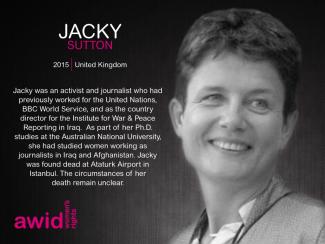
Non, il n'est pas nécessaire d'être membre de l'AWID pour y participer, mais les membres de l'AWID bénéficient d'une réduction sur les frais d'inscription ainsi que d'un certain nombre d'autres avantages.
Una colección viva de recursos para apoyar a los movimientos feministas, a personas que diseñan políticas y a aliadxs que resisten a las tendencias fascistas, fundamentalistas y anti-derechos.
